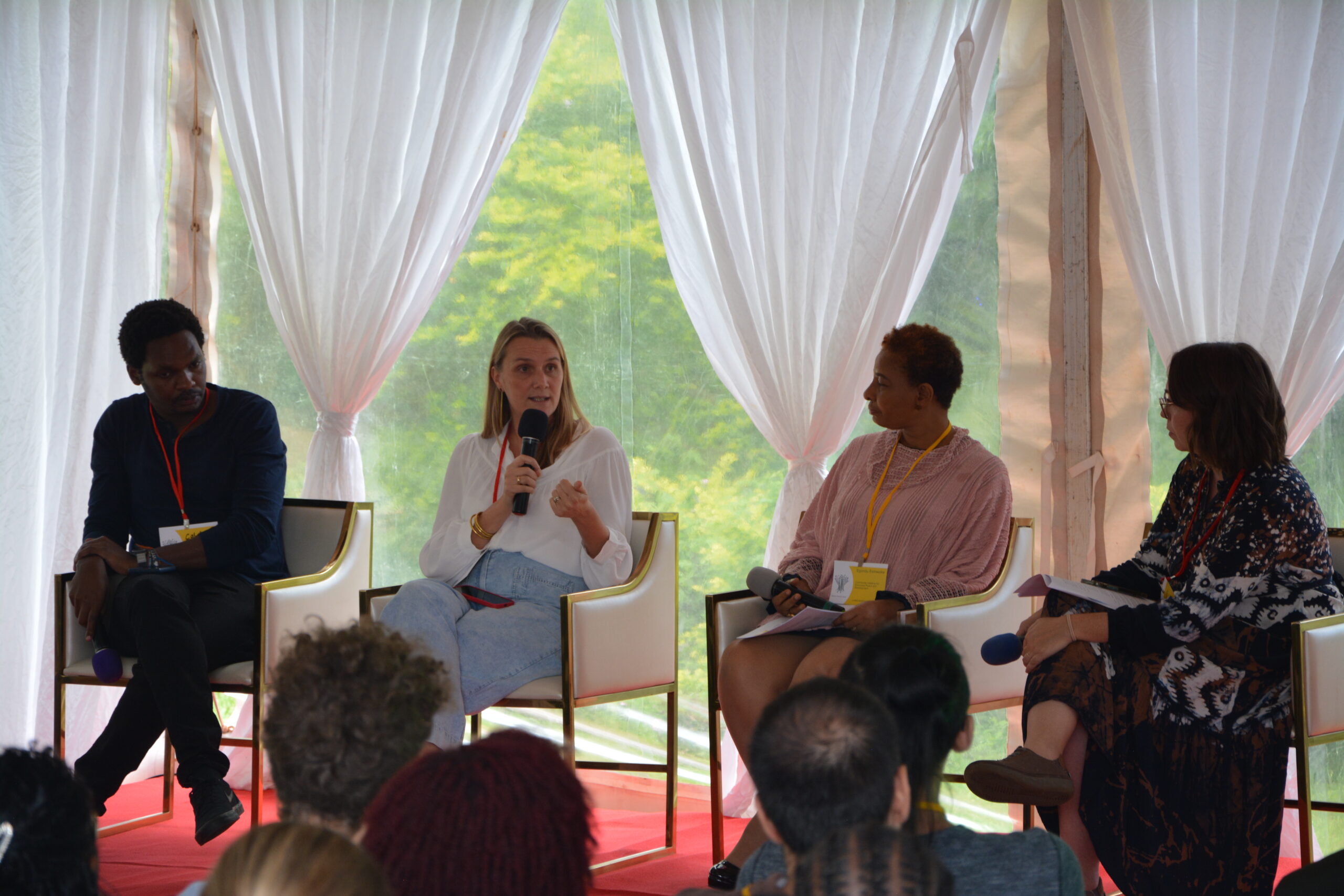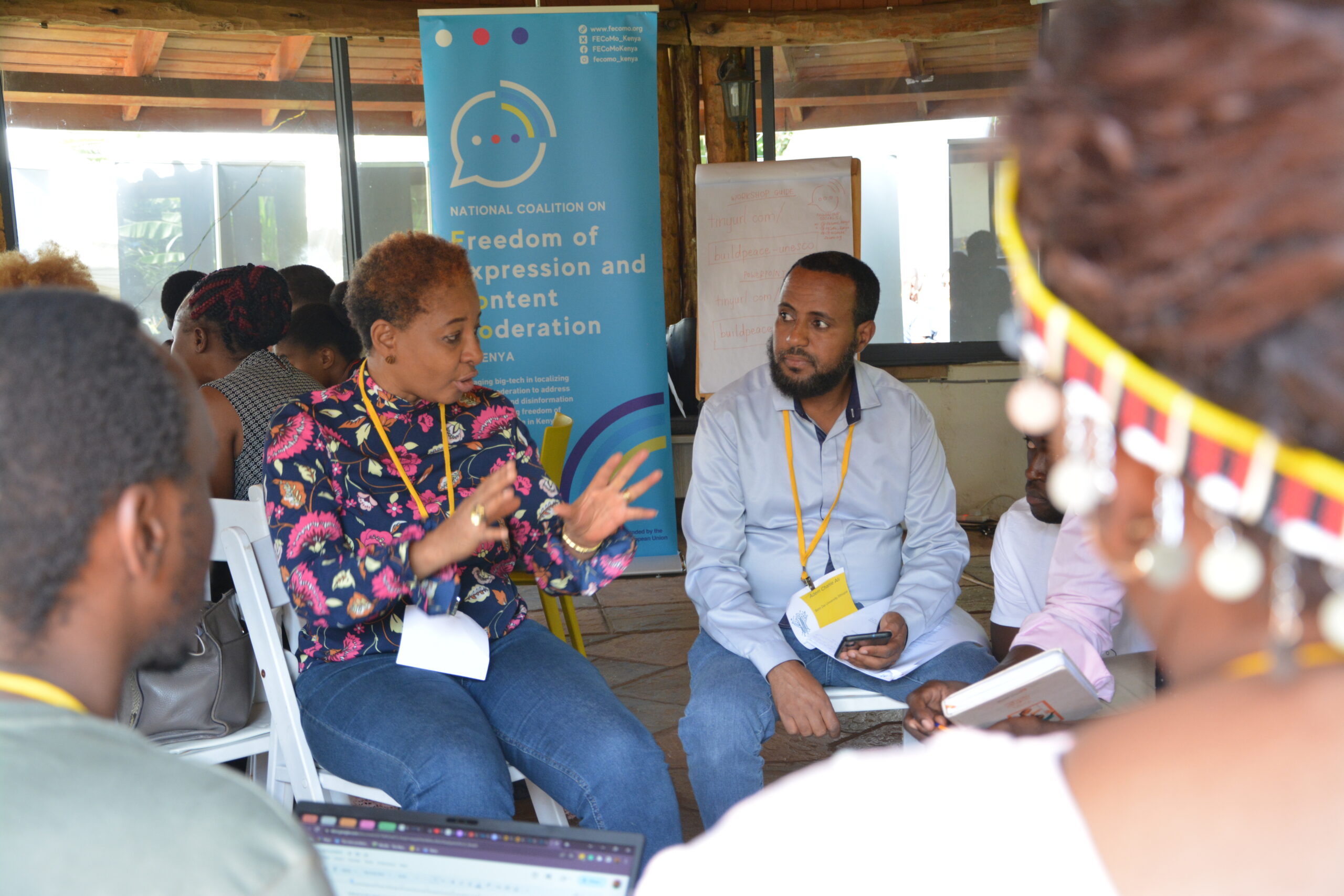
Organised by Build Up and supported by UNESCO, the annual conference discusses challenges to peace building in a digital era, including the spread of mis/disinformation and hate speech on digital platforms, and explores emerging innovations to address these challenges.
Themed “How technology and the arts influence identities relevant to peace and conflict”, this year’s conference provided a platform for reflection and expert discussions on the role of identities in conflict dynamics, particularly in Kenya and the East African region.
The three-day convening featured expert panels, short talks, presentations, and a series of interactive workshops from digital peacebuilding leaders and innovators worldwide. Novel perspectives emerged from the interdisciplinary dialogues on transformative practices in peace, conflict and innovation.

“We are only mapping conflict, not the pockets of peace. I’ve not seen a dashboard telling me where things are working and why. In this regard, digital peacebuilding may be different from traditional peacebuilding. We can and need to map spaces of hope too.”
— Caleb Gichuhi, Build Up/ FECoMo
At the conference, UNESCO and FECoMo hosted a workshop to showcase the good practices, lessons learnt, and achievements under the Social Media 4 Peace, a multi-year project funded by European Union that aims to strengthen the resilience of civil society to address potentially harmful content spread online. The project is also implemented in Bosnia and Herzegovina, Colombia and Indonesia.
The project has made significant strides in strengthening the resilience of societies to the spread of harmful content online. It focuses particularly on combatting hate speech inciting violence, while protecting freedom of expression and enhancing the promotion of peace through digital technologies, especially social media.
The establishment of FECoMo was a key milestone of the project in Kenya and has strengthened cross-sectoral partnerships between national regulators, line government agencies, community media networks, academia, CSOs, NGOs, INGOs, think tanks, and civic tech companies. Thus far, it has advanced several discussions on approaches to localize content moderation and formulate Kenyan context-specific strategies to address harmful content online.

Addressing participants, Adeline Hulin and John Okande described how UNESCO is partnering with communities, governments, academics, technologists and media and civil society organizations in Kenya and around the world to engage digital platforms in localizing content moderation, while innovating multi-stakeholder solutions for peace online.
“Individuals, organizations and countries can adapt these strategies from the Social Media 4 Peace programme to their local needs and contexts, and innovate their own response mechanisms to address harmful content on digital platforms. It is imperative that we pull our efforts together for this common cause.”
— John Okande, Programme Officer, UNESCO Regional Office for Eastern Africa
Members from the National Coalition on Freedom of Expression and Content Moderation in Kenya were also in attendance, and shared their perspectives on the importance of forging cross-sectoral partnerships through the Coalition to strengthen Kenya’s position in dialogues with big-tech companies.

The workshop was attended by over 30 participants from more than ten countries, and engaged participants in lively discussions about how policies, innovative technologies and coordinated advocacy efforts can hold digital platforms accountable for addressing hate speech and disinformation online.
A key facet of its global strategy under the SM4P project, UNESCO has also supported the establishment of national multi-stakeholder coalitions on Freedom of Expression and Content Moderation in Bosnia and Herzegovina and Indonesia. This coalition model bridges the gap between technology giants and local communities by facilitating structured engagement between digital platforms and relevant local voices.
“Participating in the Build Peace conference has been very valuable for UNESCO and the members of the National Coalition on Freedom of Expression and Content Moderation to share the results and lessons learnt of Social Media 4 Peace project with the digital peace-building community globally, who are key players and valued partners in our project.”
— Adeline Hulin, UNESCO Programme Specialist
Related:
- UNESCO supports capacity-building of the Kenyan Coalition on Content Moderation and Freedom of Expression
- Kenyan Coalition Members trained on Media and Information Literacy for Digital Peace Building
- Sorting Fact from Fiction: Kenyan Coalition trained to fact-check disinformation and hate speech online
- Kenyan Coalition Pledges Collective Action to Counter Gendered Disinformation and Hate Speech on Digital Platforms
- UNESCO Launches Social Media for Peace Project in Kenya



